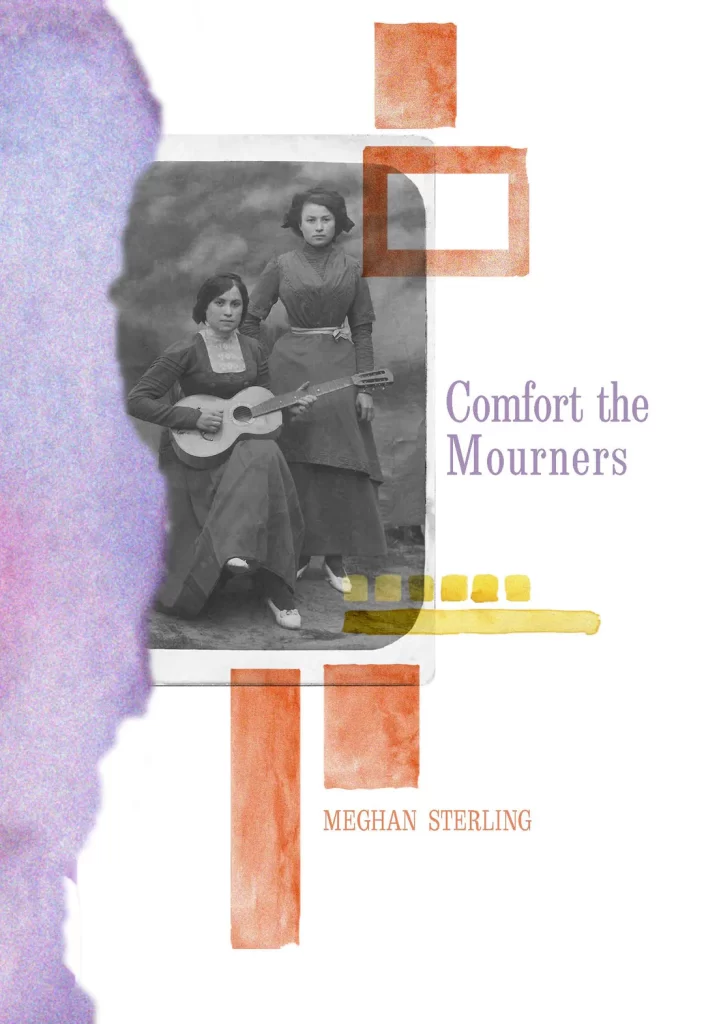Comfort the Mourners
Comfort the Mourners, by Meghan Sterling.
Everybody Press, 2023,
84 pages, paper, $24.00,
ISBN: 9781956639117
It can be argued that poets only ever write about the past — now slips quickly into then in the very act of writing — and every story a poet tells, about themselves or someone else, is forever rooted in some awareness or experience from before. Themes of time and memory layer Meghan Sterling’s Comfort the Mourners, a collection that explores what it means to fully participate in one’s past.
In “Biography,” the book’s opening poem, these themes appear immediately. Sterling offers a litany of things remembered, a catalog of connected objects and events that begin the speaker’s story:
[. . .] How many stories.
The ancestors’ escape from Ukraine, the dead,
the lovers, the houses, the states, the cars, the
journals that recorded their everything on yellow
paper, now burned.
Many of the subjects are deeply personal, and in them Sterling confronts a past that has led to a present of daughterhood, motherhood, partnerhood, and personhood. The war against Ukraine is of immediate concern in several of the poems, as are unanswered questions about one’s autonomy in a world that seems bent on oppression. What does it mean, for instance, to attempt to heal from the suffering of one’s ancestors yet still be expected to mount a defense against the ongoing ignorance that caused it? In “Flinging Myself Against You,” the speaker confronts that question and more:
I’ve died so many times already that I’m certain
the last time will shiver hollow, the final peal
of a bell rung a thousand times, chiming out
like the bright blue squares of stained glass
in the church where I attended preschool, the one
[. . .] where I had to explain again and again that I
hadn’t killed Jesus.
Sterling’s meditations on ancestry range from lament to celebration, and the lasting impact is the understanding that heritage, however tragic or beautiful, perilous or secure, is indivisible from one’s current self; heritage is always the recent past of personal identity. And that, too, is always changing, undulating like a river’s current. Indeed, images of water abound in these poems, a fitting reminder of time’s fluidity and a source of comfort in uncertain times, as in “Clouds are a Mother”: “Everything softer in the rain. The steel / swaddled in clouds. The skin of the brick / cottoned, the sky swollen.”
Ultimately, these are poems about change and growth, about how the act of remembering becomes an act of self–making, even an act of play. Recognizing, of course, “play changes / as you age, dolls and wooden spoons become stillness and light, / silence, a deep winter morning and the time to observe it.” For the poet, observation is joy. Comfort the Mourners reminds us that poetry remembers and remakes, that pain and beauty are often attached, and that for all of us, past and present are one and the same.
—Mike Bove


